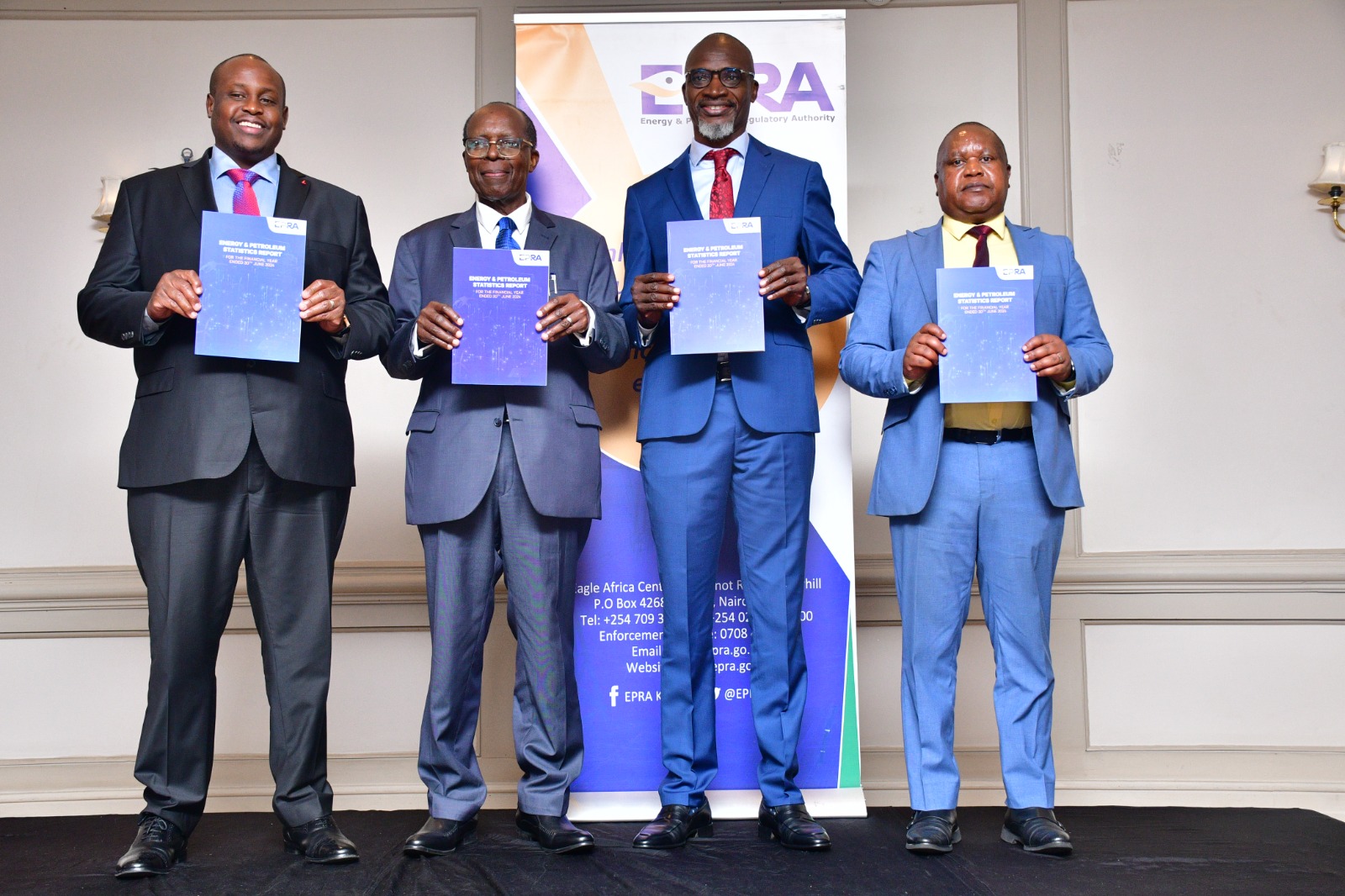Business
EPRA Report Highlights Growth in Petroleum, Electricity, and Renewable Energy Sectors

The Energy and Petroleum Regulatory Authority (EPRA) has released its Energy and Petroleum Statistics Report for the financial year 2023/2024, revealing significant progress in energy generation, distribution, and consumption across the country. The report emphasizes key achievements, including increased adoption of renewable energy, reduction in carbon emissions, and a rise in electricity generation and demand.
A major highlight was the gazetting of the Energy (Net Metering) Regulations in June 2024, promoting the use of renewable energy technologies by providing consumers with energy storage options on the grid.
Electricity Sector Milestones:
- Electricity generation grew by 2.98%, from 13,289.63 GWh in the previous year to 13,684.63 GWh by June 2024.
- Peak electricity demand rose to 2,177.13 MW on February 21, 2024, up from 2,149 MW.
- The Time-of-Use (TOU) tariff, extended to small commercial and e-mobility customers in April 2023, saved users Ksh. 1.838 billion.
- Grid-connected customers increased by 4.86%, reaching 9,659,877 by June 2024.
Renewable Energy Achievements:
- Renewable energy sources accounted for 80.04% of Kenya’s total installed capacity, totaling 2,859.4 MW.
- 83% of the energy supplied to the national grid was derived from renewable sources.
- Solar PV systems contributed to a 6.68% increase in annual energy generation, from 443.95 GWh to 473.62 GWh.
Petroleum and Gas Insights:
- Demand for Liquefied Petroleum Gas (LPG) rose to 360,594Mt, up from 333,830Mt in 2022.
- Domestic demand for petroleum products saw a slight decrease of 2.10%, totaling 5,460,436.82 cubic meters.
EPRA Director General Daniel Kiptoo noted the increasing adoption of captive power generation, driven by affordability, ease of installation, and favorable government policies. “Captive power now contributes 532.6 MW, representing 14.11% of the total installed capacity, with solar PV at the forefront, followed closely by biomass,” he stated.
The report also highlighted a significant reduction in carbon emissions, with a 29.6% decrease from electricity generation compared to the previous year, primarily due to a 21% decline in thermal power production. This reduction is a testament to Kenya’s commitment to environmental sustainability, as it continues to advance cleaner energy solutions and reduce its carbon footprint.
The findings underscore Kenya’s growing role as a clean energy leader in Africa, driven by robust policy frameworks and investments in renewable energy infrastructure. As the nation continues to prioritize sustainability, EPRA’s report highlights the importance of supporting and expanding these efforts to meet future energy demands while fostering economic growth.







You must be logged in to post a comment Login